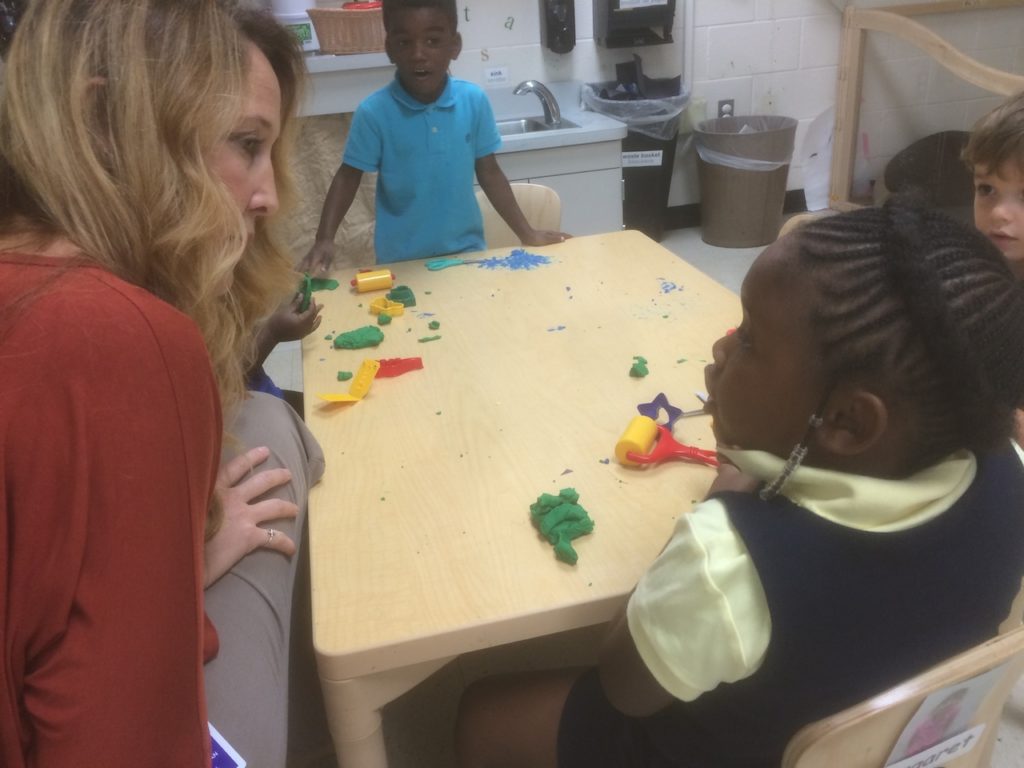
Two Vanderbilt researchers are rocking the education world this week with their five-year study that shows virtually no long-term benefit to pre-kindergarten in Tennessee. The Peabody College professors are now trying to answer why getting a head start isn’t necessarily beneficial.
This study was meant to monitor the effectiveness of Tennessee’s voluntary pre-K program. But co-investigator Mark Lipsy says it really raises questions about early elementary grades.
“The biggest mystery here is what in the world is going on as these kids hit kindergarten, first, second, third grade, that is not building on what they seem to have come out of pre-K with?”
The research followed a thousand randomly selected students. Roughly 700 went to pre-K. The others wanted to, but were wait-listed. All of them come from economically disadvantaged households.
Those who got the extra year did enter kindergarten more prepared. But by first grade, there was no difference. At the end of first grade, co-investigator Dale Farran says the pre-K students were measurably less excited about school.
“I wonder if part of what happens is if pre-K doesn’t have a better vision for itself than trying to be a junior kindergarten, if by the end of first [grade] the children have sort of had it — had the same thing for three years in a row — and it’s too much,” she says.
By third grade, the pre-K students were being outperformed by those who got the later start.
Pinpointing a cause will be difficult, Farran says, because pre-K instruction isn’t standardized. Some programs are heavier on playtime. Others do more of what’s known as skill-and-drill. Farran says she suspects those that over-do the academics may be getting diminishing returns.
Pre-K Backers Take Study With A Grain Of Salt
The push for universal pre-K in Tennessee was dealt a blow by the Peabody study.
This research, funded by a $6 million federal grant, was so
highly anticipated that Bill Haslam was talking about it six years ago when he was running to be governor. Asked to respond to the findings, Haslam pointed out the state spent $86 million this year on pre-K.
“We’ll take this as data to evaluate its effectiveness verses other things that we might do — increasing technology, paying teachers more, other investments that we want to make in k-12 education,” he said.
Haslam said he still believes
high-quality pre-K has lasting benefits. And that’s the counterpoint early childhood advocates are making.
Dana Eckman, who directs Metro Schools’ pre-K program, toured Ross Early Learning Center in East Nashville on Monday. In one classroom, students were at tables being creative with Play-Doh.
There was a day when students spent more time drilling on letters and numbers. But now they get more playtime, Eckman says. She notes that the Vanderbilt study followed students in the early years before some best practices were established.
“That’s going to be the difference now,” she says. “When they come back, when we do another research project on this, when we look at third grade, I think the outcome is going to be very different.”
Metro Schools has
received federal money to expand pre-K, and Eckman says she only sees the Vanderbilt study as an opportunity for improvement, not a time to pull the plug.


